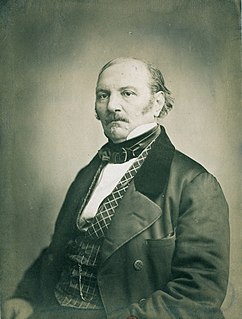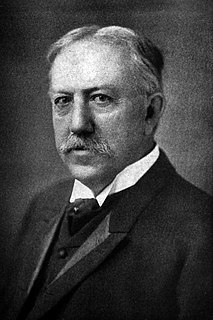A Quote by Ayn Rand
Since reason is man’s basic means of survival, that which is proper to the life of a rational being is the good; that which negates, opposes or destroys it is the evil.
Related Quotes
God did not create the evil. He established the laws which are always good because he is good. The spirits would have been completely happy had they faithfully observed the law since the beginning. But, being free to make choices, the spirits have not properly obeyed them so that evil come as a consequence of this unwillingness. One can then say that good corresponds to everything which is in accordance with God's law while evil is everything which opposes it.
When one has once accepted and absorbed Evil, it no longer demands the unfitness of the means. The ulterior motives with which youabsorb and assimilate Evil are not your own but those of Evil.... Evil is whatever distracts. Evil knows of the Good, but Good does not know of Evil. Knowledge of oneself is something only Evil has. One means that Evil has is the dialogue.... One cannot pay Evil in installments--and one always keeps on trying to.
The only sovereign I can allow to rule me is reason. The first law of reason is this: what exists exists; what is is. From this irreducible, bedrock principle, all knowledge is built. This is the foundation from which life is embraced. Reason is a choice. Wishes and whims are not facts, nor are they a means to discovering them. Reason is our only way of grasping reality–it is our basic tool of survival. We are free to evade the effort of thinking, to reject reason, but we are not free to avoid the penalty of the abyss we refuse to see." -Richard
The physiological law of Transfer of Energy is the basis of human success and happiness. There is no action without expenditure of energy, and if energy be not expended the power to generate it is lost. This law shows itself in a thousand ways in the life of man. The arm which is not used becomes palsied. The wealth which comes by chance weakens and destroys. The good which is unused turns to evil. The charity which asks no effort cannot relieve the misery she creates.
In fact, the libertarian would reason that the fact that human nature is a mixture of both good and evil provides its own particular argument in his favor. For if man is such a mixture, then the best societal framework is surely one in which evil is discouraged and the good encouraged. The libertarian maintains that the existence of the State apparatus provides a ready, swift channel for the exercise of evil, since the rulers of the State are thereby legitimated and can wield compulsion in ways that no one else is permitted to do.
It's easier to be a grownup than to be a kid. When you're a kid, you lie constantly and people are always calling you on it. And when you're a grownup, you lie constantly and people rarely do. Children are constantly being caught. Adults rarely so. Being an adult, you also get a free pass, which means you have to actively be a good person because nobody's around to tell you to do that. Even evil kids will be good when adults are watching. But once you're an adult, no one is. As a grownup, you've got an agency over your own life, which hopefully you use for the greater good and not evil.
To affirm life is to deepen, to make more inward, and to exalt the will-to-life. At the same time the man who has become a thinking being feels a compulsion to give every will-to-live the same reverence for life that he gives to his own. He experiences that other life as his own. He accepts as being good: to preserve life, to raise to its highest value life which is capable of development; and as being evil: to destroy life, to injure life, to repress life which is capable of development. This is the absolute, fundamental principle of the moral, and it is a necessity of thought.
There are three means of believing--by inspiration, by reason, and by custom. Christianity, which is the only rational institution, does yet admit none for its sons who do not believe by inspiration. Nor does it injure reason or custom, or debar them of their proper force; on the contrary, it directs us to open our minds by the proofs of the former, and to confirm our minds by the authority of the latter.
Evil denotes the lack of good. Not every absence of good is an evil, for absence may be taken either in a purely negative or in aprivative sense. Mere negation does not display the character of evil, otherwise nonexistents would be evil and moreover, a thing would be evil for not possessing the goodness of something else, which would mean that man is bad for not having the strength of a lion or the speed of a wild goat. But what is evil is privation; in this sense blindness means the privation of sight.
It is a governing principle of nature, that the agency which can produce most good, when perverted from its proper aim, is most productive of evil. It behooves the well-intentioned, therefore, vigorously to watch the tendency of even their most highly prized institutions, since that which was established in the interests of the right, may so easily become the agent of the wrong.
Since education is not a means to living, but is identical with the operation of living a life which is fruitful and inherently significant, the only ultimate value which can be set up is just the process of living itself. And this is not an end to which studies and activities are subordinate means; it is the whole of which they are ingredients.





































